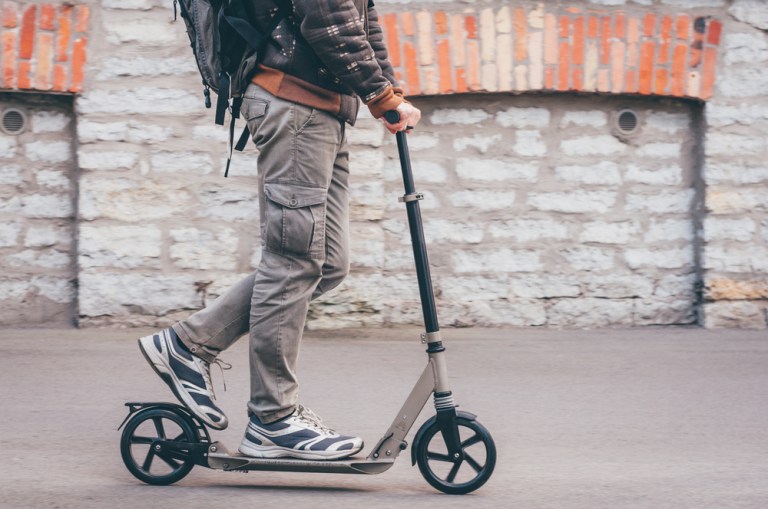In San Fran, Scooters Make (Controlled) Return

Turns out scooters may be slowing to a crawl.
In the wake of the continued controversy over bike and scooter “littering,” one major proving ground — the city of San Francisco — has granted permits to only two dockless, bike-renting companies.
The permits have gone to Skip and Scoot, reports CNET, and the duo survived the jockeying of 12 total companies for the permits. Among large players who didn’t get the nod: Uber and Lyft.
The two firms get to participate in a one year test program. The San Francisco Municipal Transportation Agency “looked for applications that prioritized the city’s concerns around safety, disabled access, equity and accountability. Taken as a whole, Scoot and Skip’s applications demonstrated not only a commitment to meet the terms of the permit, but a high level of capability to operate a safe, equitable and accountable scooter share service.”
The initial terms, per the city, were that there was room for five of these firms. As that seems to have winnowed down to just two winners, a sense of the larger scope of the dockless bike industry emerges. “Bike litter” has been a problem across several U.S. markets and China, and, in fact, CNET notes that such litter — where bikes are dumped haphazardly on sidewalks, in driveways and in all manner of public places — has been an issue in the Bay Area.
Lime and Bird are among the companies that did not receive the permits. Those two firms have been in the spotlight in the past for bringing their scooters to the San Francisco without any advance notice to the city.
“Almost instantly, hundreds of scooters littered the sidewalks,” CNET reported — and the safety hazards began. There was sidewalk congestion, and parking spots were blocked. Bird and Lime were ultimately offered cease and desist letters.
The five-company mandate followed in April, and the total number of scooters curbed (no pun intended) to 1,250 through the first six months of the project — and, if all goes well, the number will be doubled. Skip and Scoot will each operate 625 scooters in the city.
To win the permits, the companies had to demonstrate they will provide user education on safety, keeping off sidewalks, and how to park safely. Each firm also had to be insured and, in a nod to tech, institute privacy policies pertaining to user information, in addition to sharing data with the city.
The two companies had already applied for permits before launching.
Skip, which already operates in Washington D.C., has proposed “ambassadors” to educate riders. Scoot, previously operating in Barcelona, has proposed free in-person training, along with free helmets to be worn during the rental.
In the meantime, the streets (OK, sidewalks) may seem, and feel, a bit less congested. The transportation authority said the permits will not be given to Scoot and Skip until October of this year.